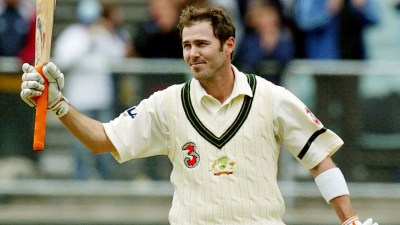Sacred space, uncommon ground
Vadodara riots show how sharply polarised, and intractable, Gujarati society has become

On Monday morning, the removal of an old dargah by municipal authorities in Vadodara was apparently a simple civic demolition exercise. The ensuing communal violence, which left four dead and triggered national politicking, exposed Gujarat as a place where perceptions of divisiveness run deep 8212; Us versus Them, Hindus vs Muslims, BJP vs Congress, partisan police and pliant administration.
Ironically it was on Gujarat Day, i.e. May 1, that the state was hijacked by sensitivities that refuse to evolve. In this instance a part of the Muslim leadership remained entrenched in its pain, refusing to move towards creative solutions.
Vadodara8217;s violent story of Muslim anguish over the dargah demolition is tailor-made to suit BJP rhetoric. Both the local authorities and the BJP-dominated municipal board had ample reason over the past couple of weeks to showcase a peaceful civic demolition drive which saw, for the first time ever, voluntary removal of small temples 8212; even if they were of recent vintage.
It then sought to perform a balancing act with the removal of a prominent Muslim structure in a sensitive part of the city. Though old, it lacked historic credentials but was wrapped in a besieged community8217;s emotions.
Even before the demolition of the dargah, the Muslims who resisted and petitioned against its removal knew, as did everyone else in the city, that there would be trouble. They knew by experience, as the dargah had been the centre of communal attacks in the past too, that there would be violent resistance by local Muslims, followed by the partisan or inadequate police action. A few of the Muslim leaders honed on the 2002 riots experience, however, failed to anticipate and evolve a response that could have avoided violence or the contentious build-up to the situation. The leadership also seems to be unable to contain its restive youth, who are itching for retaliatory violence.
The blame game post the violence becomes convenient, more so when it catches the attention of both the national press and politicians. Both the community leadership and the administration remain adamant and are present predictable responses to predictable situations. The municipal authorities stick to the latest mantra8212;of development of the larger good 8212; which is a convenient mask.
The BJP stand is short of gleeful joy as they have been handed on a platter their acclaimed avowal to development at all costs, hindered apparently by an immature Muslim rhetoric.
The Congress remains sandwiched between its support to the ongoing demolition drive and its failure to engage its Muslim constituency in a practical solution. The couple of meetings that took place in Vadodara Municipal Corporation offices over the dargah issue, like other contentious matters in the state, only hardened positions, which remained un-breached.
The most tragic aspect is that it exposes the lack of a neutral state or system, even post-riots, of institutions, which have the credibility to engage and command confidence impartially. Like the rest of the state, even the NGOs and civic institutions are viewed with partisan colours, avowed either to or against a cause, which could be pro-Gujarat, anti-Gujarat, pro-minority, anti-minority8230;the labels never cease.
In this situation it is tough to evoke confidence and impartiality if the state8217;s police chief is P C Pande, who as top cop in Ahmedabad saw the city burn in 2002 and who reported amnesia about police inaction for the riot massacres in his deposition to the Nanavati-Shah riot commission.
As complete cynicism takes over, making everything banal, a Gujarat 100 Power List 2005-06 by Gujarati daily Divya Bhaskar on completion of its 1,000 days in office makes the most heartening read in recent times in the state. It signifies the chink of space that can be widened. It has been prepared neither by ratings agencies or the daily8217;s editorial board, but gleaned from its reporters8217; inputs and feedback across the state, deliberately distanced from politicians, bureaucrats and religious figures. The contemporary 100 top achievers don8217;t include the ubiquitous Modi and Morari Bapu and is dominated not by the state8217;s traditional achievers 8212; industrialists8212; but by artists and litt8218;rateurs.
The inclusion of Mukul Sinha, the lawyer activist who fights for riot victims, Girish Patel, another veteran lawyer-activist, Mallika Sarabhai, the danseuse who drew flak for her anti-Modi stand, ISRO scientist George Joseph, former High Court Justice B J Diwan, managing editors of rival newspapers Sandesh and Gujarat Samachar and Verghese Kurien amongst others subtly redefines Gujarat Gaurav, even if that is not what the daily might have intended.
The list generated within Gujarat acknowledges perhaps for the first time publicly: space for dissenters, acceptance for achievers, inclusively and impartially, uncoloured by religious or regional biases, as it should be. There can be peaceful space for differences, if only someone dares as creatively.
ayesha.khanexpressindia.com
- 01
- 02
- 03
- 04
- 05































